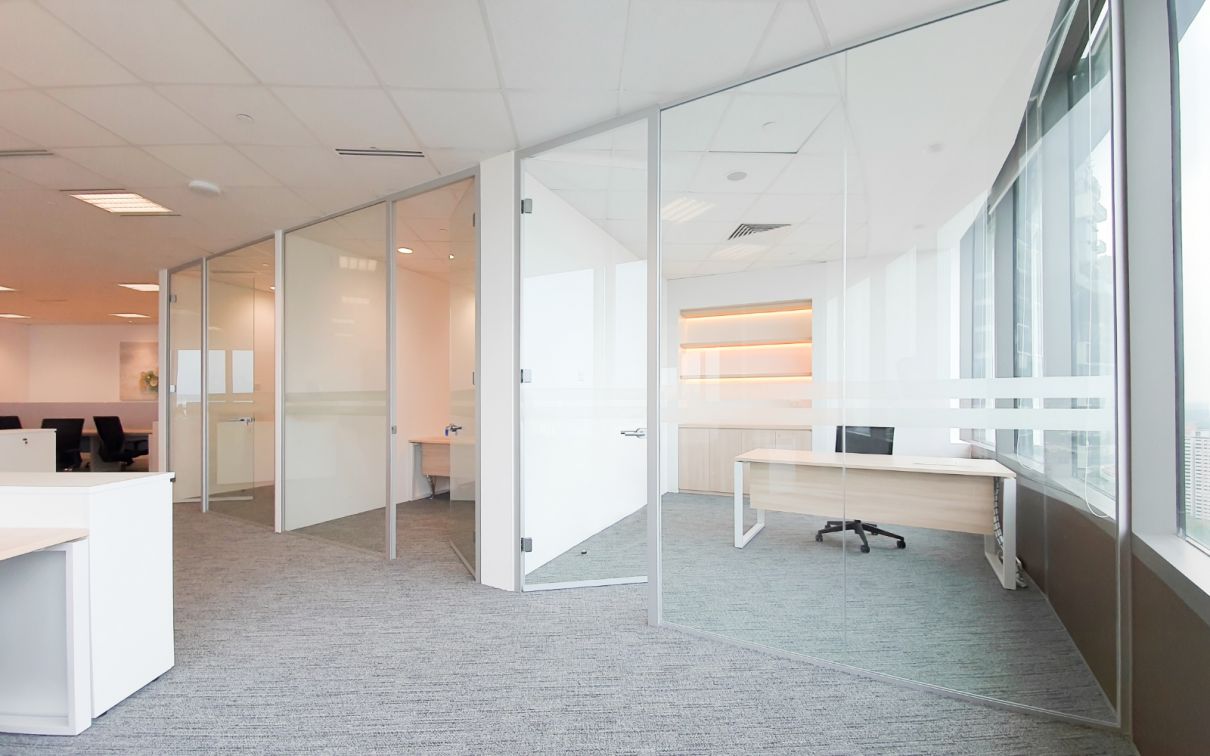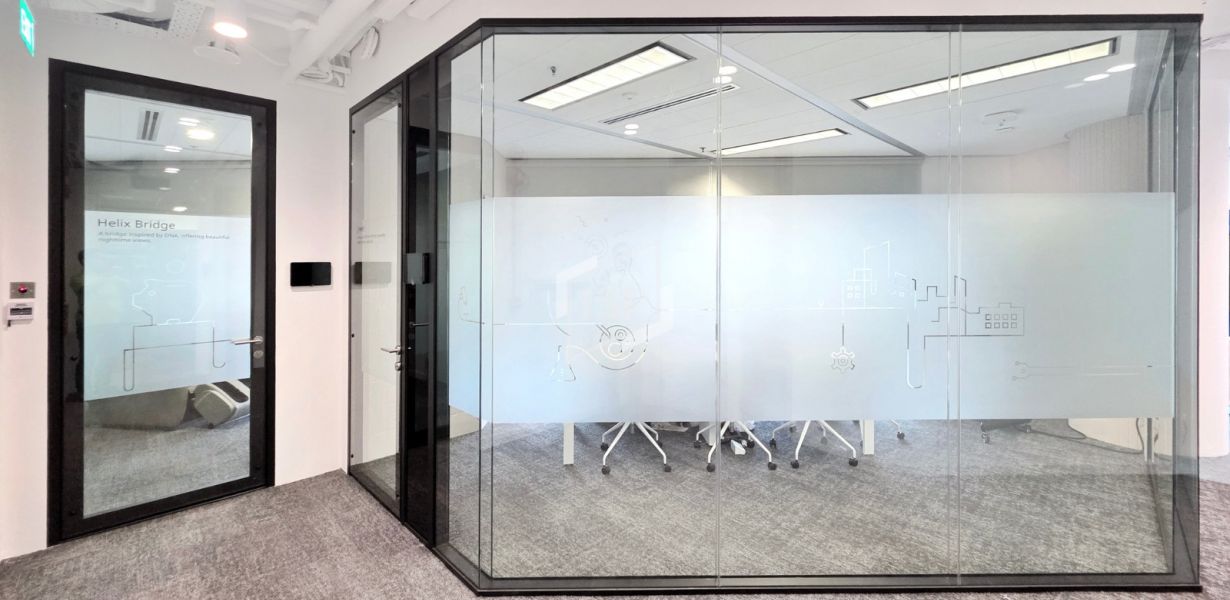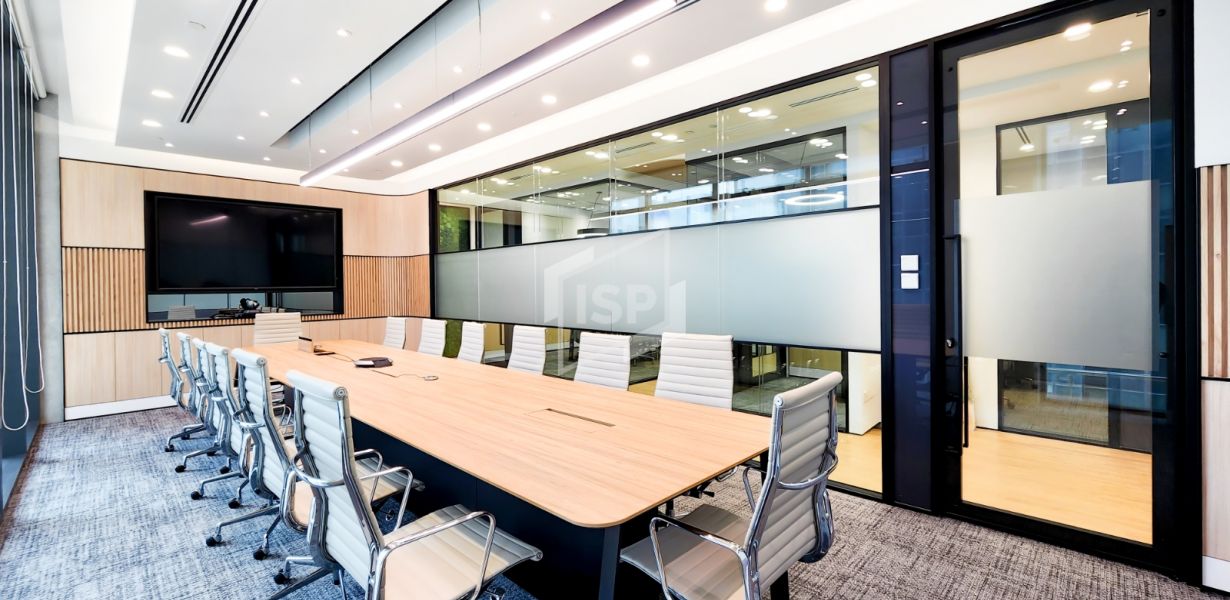Understanding Acoustic Glass System: Functions and Benefits

In the fast-paced workplaces of Singapore, creating a harmonious and productive work environment is essential. Acoustic glass systems have emerged as a key solution for modern office renovations, offering effective sound reduction and enhanced privacy. In this article, we’ll introduce the acoustic glass system, explain how it works to reduce noise, and explore the numerous benefits it brings to the workplace. Discover how this innovative system can transform your workspace into a quieter, more productive place for focused work and collaboration.
What is an Acoustic Glass System?
To understand how the acoustic glass system transforms workspaces, let’s break down its components and functionality. This system typically consists of glass of varying thickness, an aluminum frame, and a rubber seal placed within the gap between the glass panels. Together, these elements form a robust soundproofing solution ideal for private meeting rooms, classrooms, phone booths, and collaborative workspaces. Acoustic glass systems are designed to absorb sound energy and prevent vibrations from penetrating the glass, achieving significant noise reduction.
How Does the Acoustic Glass System Work?
The functionality of an acoustic glass system can be understood by examining its key components:
- Glass: Glass is a rigid, inelastic material that is an excellent reflector of sound. Its thickness plays a crucial role in the system’s sound insulation properties. Generally, thicker glass provides better sound insulation and contributes to a higher Sound Transmission Class (STC) rating, which measures how well the glass blocks sound.
- Aluminum Frame: The aluminum frame adds structural support and helps in soundproofing by holding the glass securely in place.
- Rubber Seal: The rubber seal placed within the gap between the glass panels prevents sound leakage by creating an airtight seal. This prevents vibrations from traveling through the system, maximizing its soundproofing capabilities.
Together, these components work in harmony to reduce external noise and create a more serene environment for focused work, meetings, and private conversations.
Benefits of the Acoustic Glass System
The acoustic glass system offers a range of tangible benefits by significantly reducing sound volume and improving privacy within the workplace. Below are some examples of how the system can enhance different areas:
- Meeting Rooms: Acoustic glass partitions keep confidential conversations private, preventing sound leakage and ensuring a conducive environment for focused discussions.
- Office Pods and Phone Booths: The inclusion of acoustic glass panels in these spaces effectively blocks out external noise, providing a quiet space for employees to work or engage in private conversations.
- Open Office Spaces: Acoustic glass dividers between workstations or collaborative areas reduce the impact of ambient noise, boosting concentration and overall productivity.
- Reception Areas: Acoustic glass in reception areas creates a calm atmosphere for visitors, shielding them from the noise of the surrounding office and helping create a positive first impression.
Understanding Sound Volume
To truly appreciate the benefits of the acoustic glass system, it’s helpful to understand how sound is measured. Sound volume, or loudness, is quantified in decibels (dB). Here are a few common sounds and their approximate decibel levels:
- Silence: 0dB
- Quiet whispering: 30dB
- Normal conversation: 60dB
- City street traffic: 70dB
- Busy factory: 80dB
- Live rock concert: 120dB
The acoustic glass system is designed to minimize sounds at the higher end of this spectrum, creating a more tranquil and productive workspace.
The acoustic glass system is not just an effective sound solution; it is a catalyst for enhancing workplace productivity, concentration, and privacy. By incorporating this advanced technology into your office, you can create an environment that fosters better collaboration, focuses work, and ensures well-being. Invest in an acoustic glass system today to transform your workspace into a quieter, more efficient place for your team to thrive.



